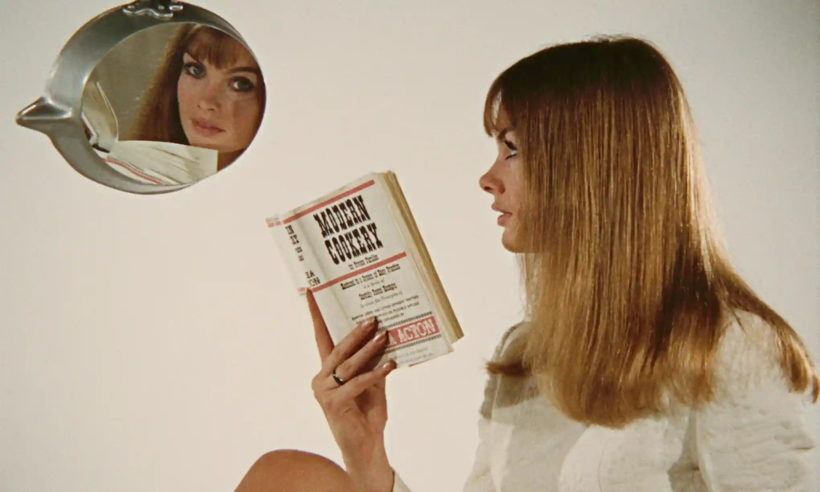
The modern housewife in “Something Nice to Eat” by Sarah Erulkar (1967) © ICO/bfi
In June, the Independent Cinema Office launched a short film tour called “The Camera Is Ours,” featuring films by pioneering British women from the 1930s to the 1960s. The films are selections from a British Film Institute digital restoration project for a double DVD. The project aims to raise the visibility of women who have been making documentaries for nearly 100 years. Among them are works that reveal the impact of war on families, examine housing conditions, and highlight barriers against inclusive societies.
Although there have been crucial female influences on the genre from the beginning, including John Grierson’s sisters Ruby and Marion, works by women have received little attention, the BFI announcement says. But the films sparked irritation upon release. Most of the films deal with themes typically assigned to women, such as motherhood, family, hearth and home.
Before two films in the cinema program, the BFI – anticipating that in times of political correctness some portrayals cause offence – had warning texts against racism, but not against sexism, inserted (in one film a blackface minstrel show is shown), Irritation was also caused by the last film in the program, “Something Nice to Eat” by Sarah Erulkar (1967). The film was sponsored by the gas authority[1] and praises an ultra-modern kitchen equipped with a lava lamp (see featured picture).
Source of supply:
double DVD “The Camera is Ours“
Cinema: Now available for bookings
[1] Almost all early British documentaries were sponsored, such as by the Post Office or the railroads